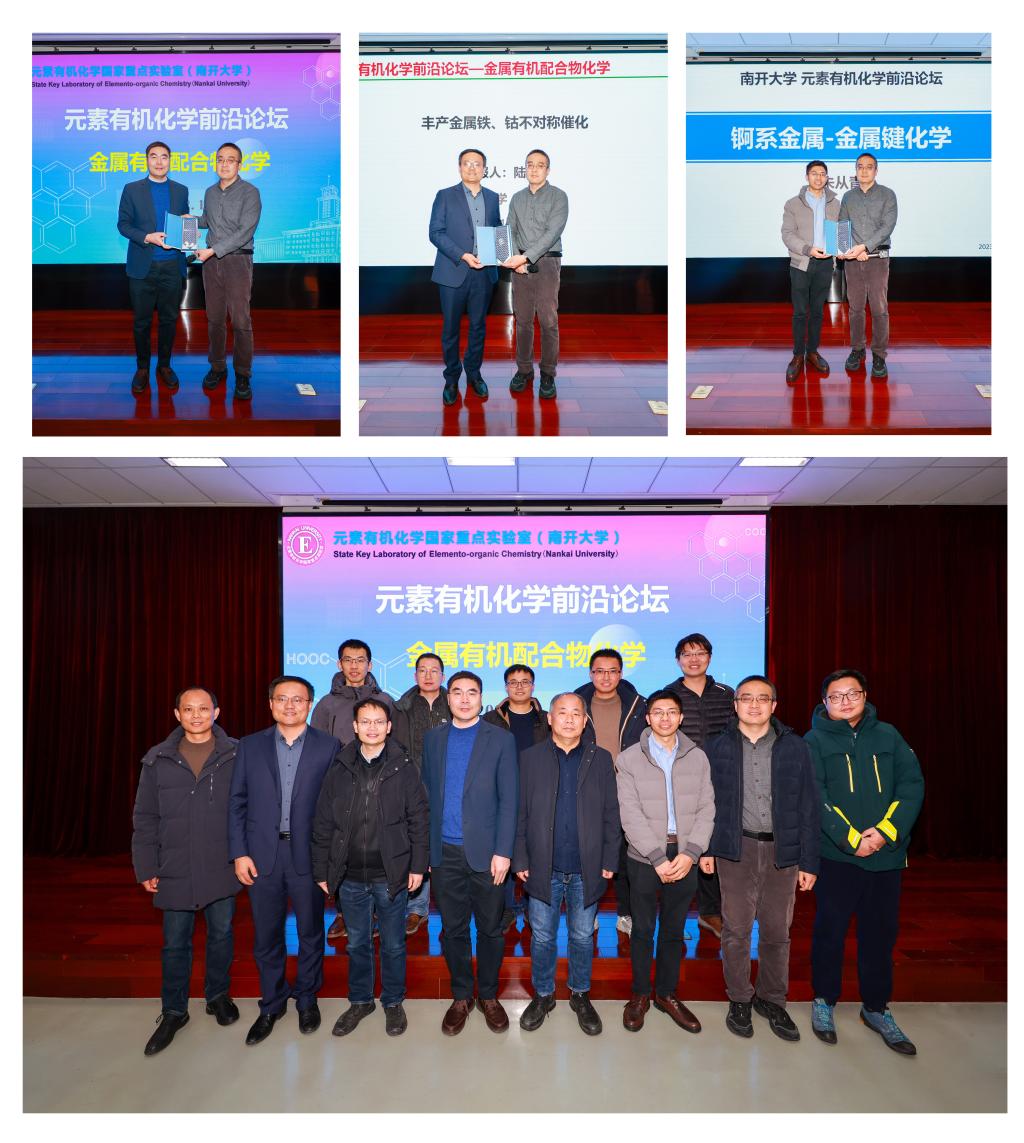In the afternoon of December 15, the "Frontier of Elemento-organic Chemistry" series - Metal Organic Complex Chemistry Seminar hosted by the State Key Laboratory of Elemento-organic Chemistry was successfully held in the academic lecture hall of Shixian Building. The seminar was chaired by Prof. Jianfeng Li from the Key Laboratory. More than 150 teachers and students from the Key Laboratory and other related colleges attended this seminar.
The seminar invited Prof. Xingang Zhang from the Shanghai Institute of Organic Chemistry, Chinese Academy of Sciences, Prof. Zhan Lu from Zhejiang University, and Prof. Congqing Zhu from Nanjing University to deliver three exciting academic presentations to the participants. Before the seminar began, Prof. Chunming Cui, the director of the Key Laboratory, expressed sincere gratitude to the three experts for their arrival and pointed out that the series of seminars on "Frontiers of Elementao-organic Chemistry" of the Key Laboratory aimed to provide a good academic exchange platform for teachers and students, strengthen academic exchange and cooperation to better enhance the laboratory's international academic influence.
At the seminar, Prof. Zhang mainly introduced the latest progress made by his research team in recent years based on the discovery of the first catalytic coupling reaction involving the coupling reaction between difluorocarbon and two electrophilic reagents under palladium catalysis, as well as the first separation, characterization and related catalytic reactions of copper difluorocarbon complexes. Prof. Lu introduced the systematic design and construction of a series of novel asymmetric C2 symmetric NNN tridentate chiral ligands and their cobalt iron complexes based on the characteristics of abundant metal iron, small cobalt atomic radius, variable valence state, spin state and coordination mode. These ligands were applied to catalyze asymmetric hydrogenation and hydrogenation reactions of olefins, solving some challenging problems which could not be achieved by precious metal catalysts. Prof. Zhu introduced a new type of "Bilayer N-P Ligands" designed based on the theory of soft and hard acid-base, which can be used to construct a series of actinide metal transition metal single bonds, double bonds, triple bonds and even actinide metal-actinide metal single bonds. Then he demonstrated the rich functions of the ligand in constructing actinide metal-metal bonds and participating in small molecule activation. After each presentation, teachers, students and experts participated engaged in extensive communication and interaction around the seminar theme.

Metal Organic Chemistry is an ancient and young discipline, whose development has broken the boundaries between traditional Organic Chemistry and Inorganic Chemistry. It also intertwined with Theoretical Chemistry, Synthetic Chemistry, Catalysis, Structural Chemistry, Bioinorganic Chemistry, Polymer Chemistry. Metal Organic Chemistry mainly includes the synthesis, structural characterization and application of metal organic complexes (organic synthesis, polymer polymerization, small molecule activation, etc.), and also provides theoretical and experimental guidance for the study of the essence of chemical reactions involving metals from the perspective of elementary reactions and mechanisms. The purpose of this seminar is to showcase to teachers and students the latest research achievements of domestic scholars in the field of metal organic complex chemistry.